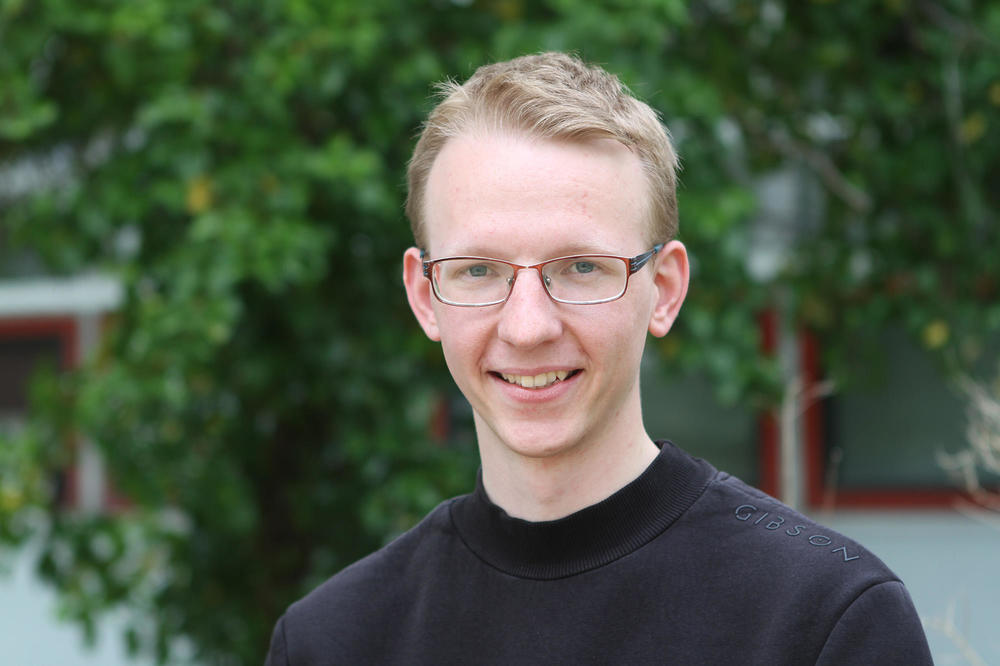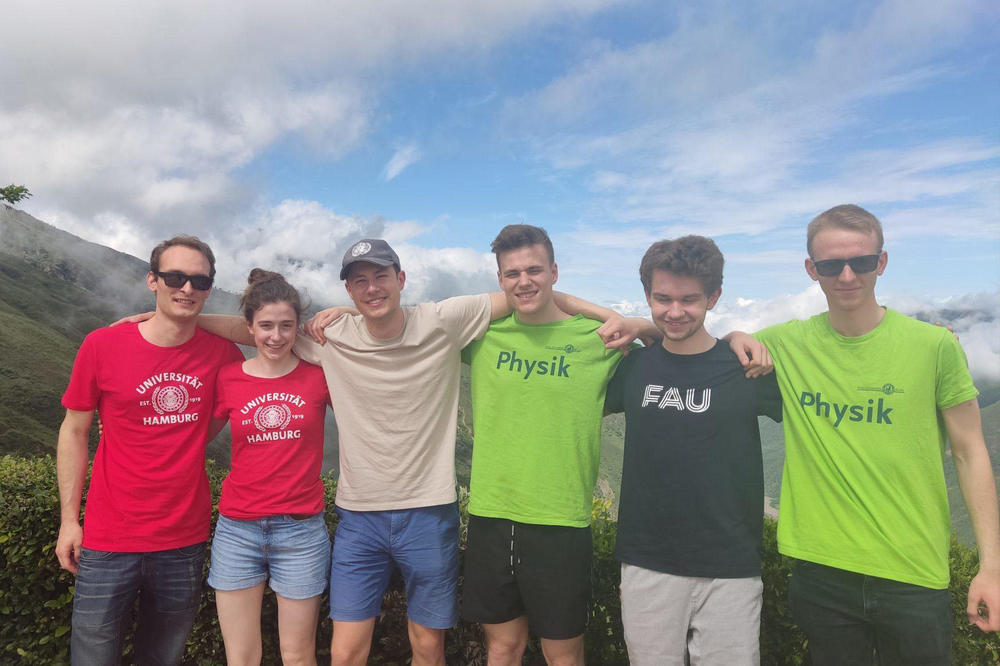Physics Finalists Finish Fifth
German team of physics students awarded fifth place at the International Physicists’ Tournament in Colombia. Freie Universität physics student and team member Florian Hirsch tells us more
Jun 17, 2022
Florian Hirsch explains that the tournament taught him how to tell stories in an exciting way within a short space of time – a skill that will certainly prove useful throughout his academic career.
Image Credit: Olga Jarugski
Participants in the International Physicists’ Tournament (IPT) only have a fixed amount of time to present their results. In under ten minutes, they have to explain the theory behind their solutions, as well as the experiments and simulations that prove these findings. “And then,” says Florian Hirsch from Freie Universität Berlin, “you also have to present the solutions themselves. After all, that’s the most important part.”
Historic Result for Germany at the IPT
Hirsch and his teammates made excellent use of what little time they had. By achieving fifth place at this year’s IPT in Colombia, the team produced Germany’s best result of all time. For Florian Hirsch, Christian Schäfer, and Justus Heß (Freie Universität Berlin), Nils Müller and Lisanne Löher (Universität Hamburg), and Luca Beetz (Friedrich-Alexander-Universität Erlangen-Nürnberg), this was an incredibly big, yet also incredibly unexpected achievement.
A Whim Decision Pays Off
The six students only recently joined forces as a team. Speaking about the moment in which the idea came about to enter an international competition, Hirsch said, “While I was visiting Lisanne during her semester abroad in Denmark, we started talking about how we used to take part in competitions like the Mathematical Olympiad when we were at school. We enjoyed them so much that we wanted to keep competing as university students.”
After a little Internet research, Hirsch and Löher quickly came across the International Physicists’ Tournament. With the qualifying tournament for the German team set to take place just a week later, they had to act quickly. Löher and Hirsch phoned up four fellow students to get them involved. Despite not having had much time to prepare, the team of six won the qualifying tournament, securing their spot in the final competition in Colombia.
Nils Müller, Lisanne Löher, Christian Schäfer, Justus Heß, Luca Beetz, and Florian Hirsch (from left to right) represented Germany at the International Physicists’ Tournament (IPT) in Colombia.
Image Credit: personal collection
More Than Just Physics Problems...
“We knew what we had to do,” says Hirsch. “Last September we received a list of seventeen problems. The challenge was to be able to present solutions to any one of these problems during the tournament in Colombia.” The team of students divided them up among themselves. Part of the work involved searching for suitable laboratories in which to carry out experiments to solve the problems. Unfortunately, these experiments were plagued with issues from the beginning.
For example, the team planned to use a high-speed camera to record and investigate how chalk reacts when dropped from a height. However, the optical laboratory did not have the stand that this experiment required. When the students wished to carry out another experiment using a robot with a gripper arm to simulate how, if a vessel containing sand is shaken appropriately, an item placed at the bottom of the vessel will ascend up through the sand and emerge at the top, the robot broke before the students even arrived at the lab.
There were lots of hurdles to overcome. The students found that some of the problems were simply unsolvable under the given circumstances. In other cases, the experiments were unsuccessful, or it was impossible to reconcile theory with practice.
In the end, the team was able to solve nine of the seventeen problems. Hirsch, however, was undeterred. The rules of the tournament specify that each team is allowed to reject three problems per round – and one for the entire duration of the tournament. “This meant that, in each round, we had a more than 90 percent chance of being able to present the solution to a problem that we had actually solved,” says Hirsch.
Supported by Freie Universität Berlin
Florian Hirsch, Justus Heß, Christian Schäfer, and the other members of the team received support from their respective universities when it came to dealing with various academic and organizational challenges. This support came in various forms. For example, Freie Universität Berlin, Universität Hamburg, and Friedrich-Alexander-Universität Erlangen-Nürnberg covered the costs for the students’ flights to Colombia, participation fees, and some of the material costs incurred during the experiments. They also provided facilities in which the students were able to work.
This involvement was rewarded with a historic result for Germany at the IPT, meaning that future participants in the tournament will probably receive even more support. For Hirsch, this is good news. Looking back at the tournament, he summarizes what the event taught him personally: “In the International Physicists’ Tournament, we learned how to condense sixty minutes’ worth of content into a ten-minute presentation without overwhelming the audience. This was a concept that differed considerably from what we were used to in our studies. We were forced to think carefully about how to tell a story in an exciting way.” This experience will surely be of great help to Hirsch, who wishes to continue his education with a master’s at Oxford University.
This article originally appeared in German on June 13, 2022, in campus.leben, the online magazine of Freie Universität Berlin.


